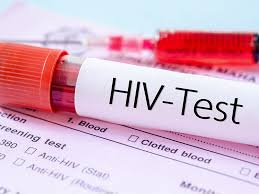The Future of Healthcare Marketing: Building Trust in the Digital Age
Healthcare marketing has evolved dramatically over the past decade, transforming from traditional print advertisements and physician referrals to sophisticated digital strategies that prioritize patient engagement and education. As the healthcare landscape becomes increasingly competitive, medical practices, hospitals, and healthcare organizations are recognizing the critical importance of strategic marketing to connect with patients and build lasting relationships.
The Digital Transformation of Healthcare Marketing
The healthcare industry has traditionally been conservative in its marketing approach, but the digital revolution has changed everything. Patients now research symptoms online, compare healthcare providers, and make informed decisions about their care before ever setting foot in a medical facility. This shift has created unprecedented opportunities for healthcare organizations to engage with their communities through targeted digital marketing strategies.
Modern healthcare marketing goes far beyond simple advertising. It encompasses patient education, community engagement, reputation management, and the creation of meaningful connections between healthcare providers and the communities they serve. The most successful healthcare organizations understand that effective marketing is about building trust, demonstrating expertise, and showing genuine care for patient wellbeing.
Key Components of Effective Healthcare Marketing
Content Marketing and Patient Education
Educational content has become the cornerstone of successful healthcare marketing. Patients seek reliable, accessible information about their health conditions, treatment options, and preventive care. Healthcare organizations that provide valuable, medically accurate content establish themselves as trusted authorities in their field.
Blog posts, video content, infographics, and downloadable resources help patients understand complex medical topics while demonstrating the healthcare provider’s expertise. This approach not only attracts potential patients but also supports existing patients in their healthcare journey.
Digital Presence and Search Engine Optimization
A strong digital presence is essential for healthcare organizations. Most patients begin their healthcare journey with an online search, making search engine optimization crucial for visibility. Healthcare providers must ensure their websites are optimized for local search, mobile-friendly, and contain relevant, high-quality content that addresses patient concerns.
Professional healthcare marketing agencies, such as Wowbix Healthcare, specialize in developing comprehensive digital strategies that improve online visibility while maintaining compliance with healthcare regulations and privacy requirements.
Social Media Engagement
Social media platforms offer unique opportunities for healthcare organizations to connect with their communities. These platforms enable healthcare providers to share educational content, highlight patient success stories, showcase their team, and engage in meaningful conversations about health and wellness.
However, healthcare social media marketing requires careful navigation of privacy regulations and professional boundaries. Successful campaigns focus on education, community building, and demonstrating the human side of healthcare while maintaining appropriate professional standards.
Compliance and Ethical Considerations
Healthcare marketing operates within a complex regulatory environment that includes HIPAA privacy requirements, FDA guidelines for medical advertising, and various state and local regulations. Marketing campaigns must be carefully crafted to ensure compliance while still being effective and engaging.
Patient testimonials, before-and-after photos, and treatment outcome claims require special attention to ensure they meet regulatory requirements. Healthcare marketing professionals must stay current with evolving regulations and industry best practices to protect both their clients and the patients they serve.
The Role of Data and Analytics
Modern healthcare marketing relies heavily on data analytics to measure effectiveness and optimize campaigns. Healthcare organizations can track patient acquisition costs, conversion rates, and return on investment for various marketing channels. This data-driven approach enables continuous improvement and ensures marketing budgets are allocated effectively.
Patient journey mapping helps healthcare marketers understand how potential patients discover, evaluate, and choose healthcare providers. This insight enables the creation of targeted marketing campaigns that address specific patient needs and concerns at each stage of their decision-making process.
Building Long-Term Patient Relationships
Successful healthcare marketing extends beyond patient acquisition to focus on retention and relationship building. Email marketing campaigns, patient portals, and regular communication help maintain connections with existing patients while encouraging preventive care and follow-up appointments.
Patient satisfaction surveys and feedback collection provide valuable insights that inform both marketing strategies and service improvements. Healthcare organizations that actively listen to patient feedback and respond appropriately build stronger relationships and generate positive word-of-mouth referrals.
The Future of Healthcare Marketing
As technology continues to evolve, healthcare marketing will likely incorporate artificial intelligence, personalized patient experiences, and advanced analytics to deliver more targeted and effective campaigns. Virtual reality, telemedicine integration, and mobile health applications will create new opportunities for patient engagement and education.
Healthcare organizations that embrace these technological advances while maintaining focus on patient care and regulatory compliance will be best positioned for success in the evolving healthcare landscape.
Conclusion
The future of healthcare marketing lies in building authentic relationships with patients through education, engagement, and exceptional service. As the industry continues to evolve, healthcare organizations must adapt their marketing strategies to meet changing patient expectations while maintaining the highest standards of ethical practice and regulatory compliance.
Successful healthcare marketing requires specialized expertise, regulatory knowledge, and a deep understanding of patient needs and behaviors. Organizations that invest in professional healthcare marketing services position themselves to thrive in an increasingly competitive marketplace while ultimately serving their communities more effectively.
The key to success in healthcare marketing is remembering that behind every campaign, strategy, and metric is a real person seeking care and support. When healthcare marketing maintains this human focus while leveraging modern tools and techniques, it creates meaningful connections that benefit both healthcare providers and the patients they serve.







